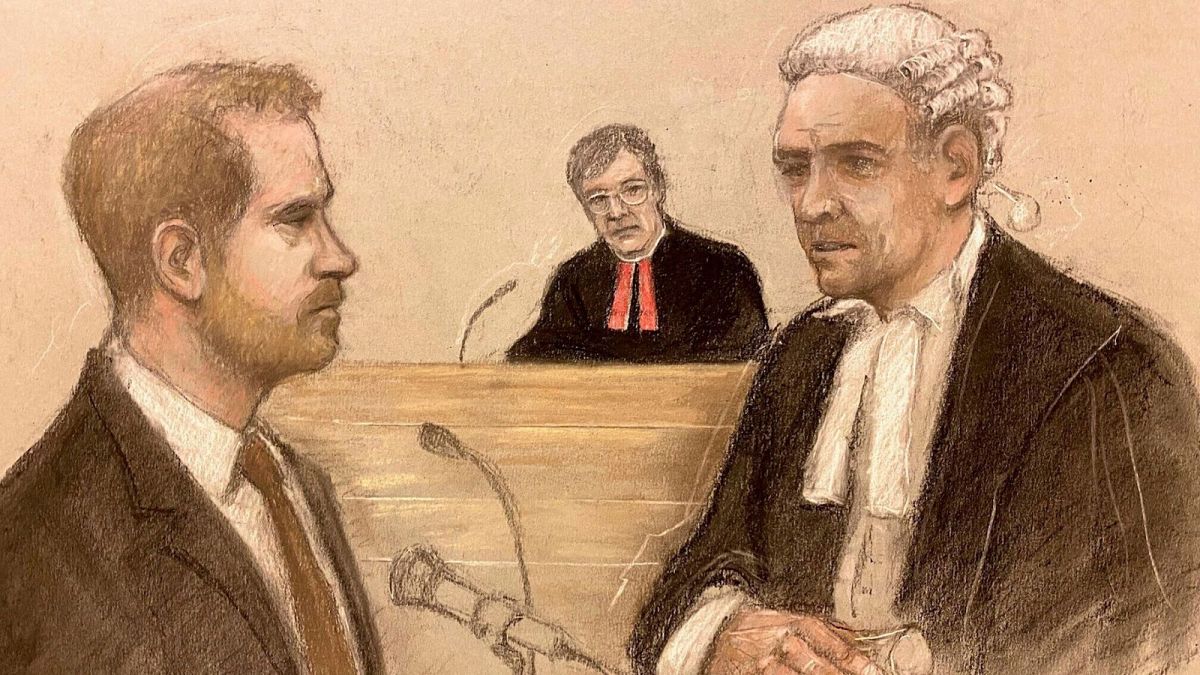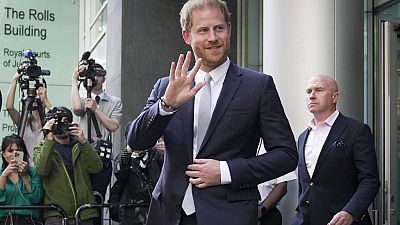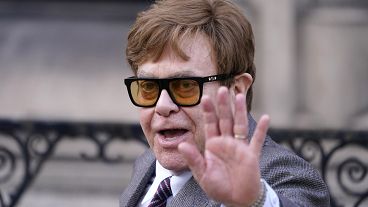Harry, the Duke of Sussex, accuses newspaper of using unlawful methods to get stories which left him in a downward spiral.
Prince Harry entered a court room witness box swearing to tell the truth in testimony against a tabloid newspaper publisher he accuses of phone hacking and other unlawful snooping.
Harry held a Bible in one hand as he was sworn in at the High Court in London, where he is suing the publisher of the Daily Mirror.
Harry accuses the publisher of the Mirror of using unlawful techniques on an “industrial scale” to get scoops.
Sitting in the witness box, Harry told Mirror Group attorney Andrew Green he had "experienced hostility from the press since I was born." The prince accused the tabloids of playing “a destructive role in my growing-up.”
Green asked him to identify what evidence he had of phone hacking in specific articles, and Harry said he'd have to ask that question of the journalist who wrote it. He repeatedly said that the manner in which information had been obtained was highly or incredibly suspicious.
He said that it was also suspicious that some of the journalists had been known for hacking or invoices to third parties, including private investigators known for snooping, around the time of the articles.
When asked how reporters could have hacked his phone for an article about his 12th birthday — a time when he admitted he didn't have a mobile phone — he suggested they may have hacked the phone of his mother, the late Princess Diana.
"That’s just speculation you’ve come up with now,” Green suggested.
In the same article, Green pointed out that a reference to him taking his parents' divorce badly was obvious.
“Like most children I think, yes," Harry said.
But the prince said it was not legitimate to report such information and “the methods in which it was obtained seem incredibly suspicious."
Green then pointed out that his mother previously made public comments to reporters about the difficulties of her children after the divorce.
The 38-year-old son of King Charles III is the first senior British royal since the 19th century to face questioning in a court. An ancestor, the future King Edward VII, appeared as a witness in a trial over a gambling scandal in 1891.
Setting out the prince’s case in court on Monday, his lawyer, David Sherborne, said that from Harry's childhood, British newspapers used hacking and subterfuge to mine snippets of information that could be turned into front-page scoops.
He said that stories about Harry were big sellers for the newspapers, and around 2,500 articles had covered all facets of his life during the time period of the case — 1996 to 2011 — from injuries at school to experimenting with marijuana and cocaine to ups and downs with girlfriends.
In a written witness statement, Harry said that he felt “as though the tabloid press thought that they owned me absolutely.”
“I genuinely feel that in every relationship that I’ve ever had — be that with friends, girlfriends, with family or with the army, there’s always been a third party involved, namely the tabloid press," he said.
He said the behaviour of the press had him in a "downward spiral".
Hacking — the practice of guessing or using default security codes to listen to celebrities’ cellphone voice messages — was widespread at British tabloids in the early years of this century.
Mirror Group has paid more than £100 million pounds to settle hundreds of unlawful information-gathering claims, and printed an apology to phone hacking victims in 2015.
But the newspaper denies or hasn't admitted any of Harry's claims, which relate to 33 published articles.
Green said Monday there was “simply no evidence capable of supporting the finding that the Duke of Sussex was hacked, let alone on a habitual basis.”



